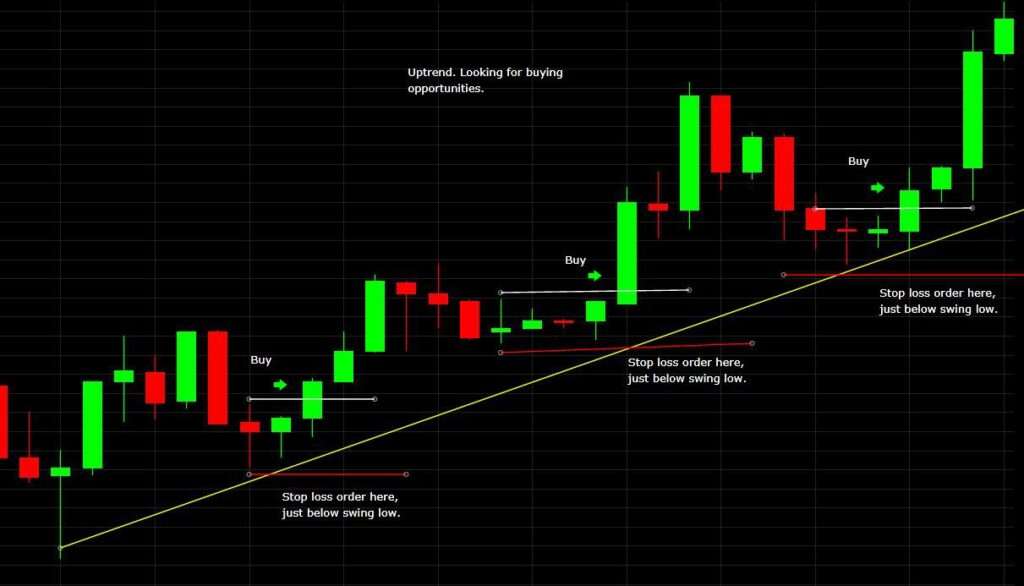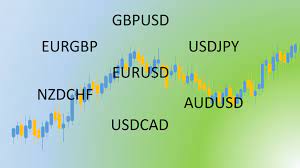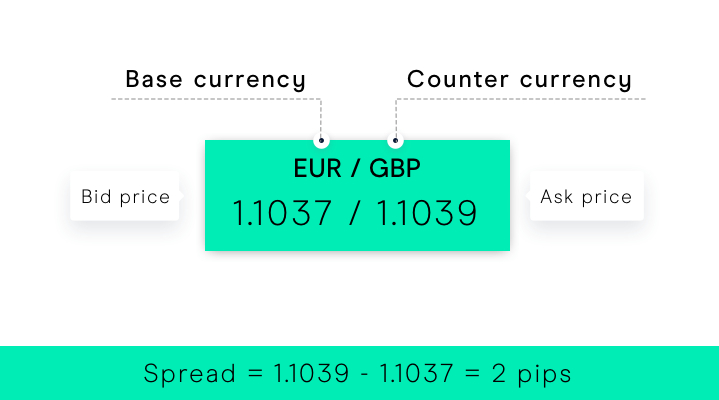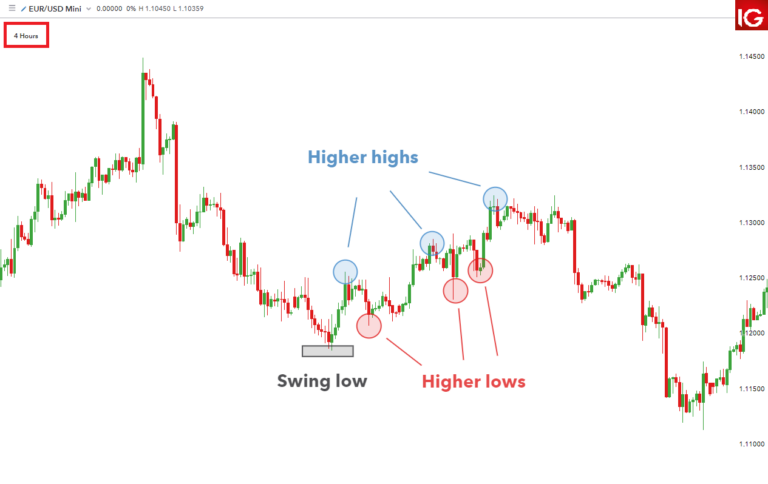Introduction
Forex trading, with its allure of potential profits, often draws in eager investors looking to capitalize on currency fluctuations. However, alongside the promise of gains, there exists an inherent risk of losses. Understanding and effectively managing these losses are crucial aspects of navigating the dynamic world of forex trading. In this article, we delve into the significance of comprehending forex trading losses, their emotional impact, and strategies for bouncing back resiliently.
Understanding Forex Trading Losses
Forex trading involves the buying and selling of currencies in the foreign exchange market. Like any investment venture, it carries the risk of financial loss. These losses can occur due to various factors such as market volatility, economic events, geopolitical tensions, or simply poor decision-making.
One of the primary reasons traders experience losses is due to insufficient understanding of market dynamics and inadequate risk management strategies. Without a clear grasp of market fundamentals, technical analysis, and risk assessment, traders may find themselves vulnerable to significant losses.
The Emotional Impact of Forex Trading Losses
Forex trading losses can evoke a range of emotions, including frustration, disappointment, fear, and even despair. The psychological toll of losing money can impair judgment and lead to impulsive decision-making, further exacerbating the situation.
Many traders struggle with the emotional aspect of losses, often experiencing a blow to their confidence and self-esteem. It’s essential to acknowledge these emotions and develop coping mechanisms to navigate through challenging times.
The Importance of Analyzing and Learning from Losses
While losses can be disheartening, they also present invaluable learning opportunities. Analyzing trades that resulted in losses allows traders to identify mistakes, understand what went wrong, and implement corrective measures.
Successful forex traders view losses as feedback mechanisms rather than setbacks. By dissecting losing trades, they gain insights into market dynamics, refine their strategies, and ultimately improve their trading performance.
Strategies for Bouncing Back from Forex Trading Losses
Bouncing back from forex trading losses requires resilience and a proactive approach. Here are some strategies to help traders recover and regain confidence:
- Acceptance: Acknowledging the reality of losses is the first step towards recovery. Instead of denying or avoiding losses, embrace them as an integral part of the trading journey. Understand that experiencing losses is not a reflection of failure but rather a common occurrence in the volatile forex market. By accepting losses as inevitable, traders can free themselves from the burden of guilt or self-doubt, allowing them to focus on moving forward and improving their trading strategies.
- Reframe Perspective: Shifting the perspective on losses is essential for maintaining a positive mindset in forex trading. Rather than viewing losses as setbacks or failures, consider them as valuable learning opportunities. Each loss provides insights into areas that need improvement, whether it be refining trading strategies, enhancing risk management techniques, or sharpening analytical skills. By reframing losses as stepping stones towards growth and improvement, traders can harness their experiences to become more resilient and successful in the long run.
- Review and Reflect: Conducting a thorough review of losing trades is crucial for learning from mistakes and avoiding repeat errors. Take the time to analyze the factors that led to the loss, such as market conditions, entry and exit points, risk management strategies, and emotional triggers. Identify any patterns or recurring mistakes and reflect on what can be learned from each experience. By gaining a deeper understanding of why the trade went wrong, traders can make informed adjustments to their trading approach and increase their chances of success in future trades.
- Adjust Trading Plan: Modifying the trading plan based on insights gained from analyzing losses is essential for adapting to changing market conditions and improving performance. Evaluate the effectiveness of trading strategies, risk management techniques, and entry/exit criteria in light of past losses. Consider tweaking parameters, setting stricter risk limits, or exploring alternative approaches to trading. By continuously refining the trading plan based on real-world experiences, traders can enhance their decision-making process and minimize the likelihood of future losses.
- Stay Disciplined: Maintaining discipline is paramount for bouncing back from forex trading losses and avoiding further setbacks. Stick to predefined trading rules and avoid deviating from the established plan, especially during periods of emotional distress or market turbulence. Resist the temptation to make impulsive decisions driven by fear, greed, or frustration. Instead, remain calm, patient, and focused on executing the trading strategy with consistency and discipline. By adhering to a disciplined approach, traders can mitigate the impact of losses and stay on course towards long-term success in forex trading.
Developing a Resilient Mindset in Forex Trading
Building resilience is essential for navigating the ups and downs of forex trading. A resilient mindset enables traders to bounce back from losses, stay focused during challenging times, and maintain a positive outlook. Here are some tips for developing resilience:
- Cultivate Patience: Understand that success in forex trading takes time and requires patience. Avoid chasing quick profits or trying to recover losses hastily.
- Practice Self-awareness: Be mindful of emotions and thought patterns that arise during trading. Develop strategies to manage stress and maintain emotional equilibrium.
- Set Realistic Goals: Establish achievable goals and milestones, and celebrate progress along the way. Unrealistic expectations can lead to frustration and disappointment.
- Learn from Experience: Embrace both successes and failures as learning opportunities. Continuously seek to improve and refine trading skills.
Utilizing Risk Management Techniques to Minimize Losses
Effective risk management is paramount in forex trading to limit losses and preserve capital. Implementing risk management techniques can help mitigate downside risks and protect against catastrophic losses. Key risk management strategies include:
- Position Sizing: Determine the appropriate position size based on account size, risk tolerance, and trade setup. Avoid risking more than a predetermined percentage of capital on any single trade.
- Stop-loss Orders: Set stop-loss orders to automatically exit losing trades at predefined price levels. This helps limit losses and prevents emotional decision-making.
- Diversification: Spread risk across multiple currency pairs or asset classes to reduce exposure to any single trade or market event.
- Risk-reward Ratio: Evaluate potential trade setups based on their risk-reward ratio. Aim for trades with favorable risk-reward profiles, where potential rewards outweigh potential losses.
Learning from Successful Forex Traders
Learning from experienced traders can provide valuable insights and guidance for navigating the complexities of forex trading. Studying the strategies, habits, and mindset of successful traders can offer inspiration and practical wisdom. Here are some ways to learn from successful forex traders:
- Read Books and Articles: Delve into literature authored by successful traders to gain valuable insights into their strategies, mindset, and approach to trading. Books and articles covering various aspects of forex trading, including trading psychology, technical analysis, risk management, and market dynamics, can offer invaluable wisdom and practical advice. By studying the experiences and expertise shared by successful traders in written form, aspiring traders can broaden their knowledge base and gain new perspectives on navigating the complexities of the forex market.
- Attend Seminars and Webinars: Participating in trading seminars, workshops, and webinars provides an excellent opportunity to learn from seasoned traders and industry experts firsthand. These events often feature presentations, discussions, and Q&A sessions covering a wide range of topics related to forex trading, from fundamental analysis to advanced trading strategies. By actively engaging with experienced traders in a live or virtual setting, participants can gain valuable insights, ask questions, and network with like-minded individuals. Seminars and webinars offer a dynamic learning environment where traders can absorb new information, exchange ideas, and enhance their trading skills.
- Follow Trading Blogs and Forums: Engage with online communities, trading forums, and blogs where successful traders share their experiences, insights, and trading ideas. These platforms provide a wealth of information and a vibrant community of traders discussing market trends, trading strategies, and investment opportunities. By following reputable trading blogs and forums, aspiring traders can stay updated on the latest developments in the forex market, learn from the experiences of others, and gain valuable tips and advice from seasoned professionals. Actively participating in discussions, asking questions, and sharing knowledge within trading communities fosters a collaborative learning environment where traders can support and learn from each other’s experiences.
- Mentorship and Coaching: Seeking mentorship or coaching from experienced traders can provide personalized guidance, feedback, and support tailored to individual needs and goals. A mentor or coach can offer invaluable insights, share practical strategies, and provide constructive feedback on trading performance. Whether through one-on-one sessions, mentorship programs, or trading academies, mentorship and coaching relationships offer a unique opportunity for aspiring traders to accelerate their learning curve, avoid common pitfalls, and gain a competitive edge in the forex market. By leveraging the expertise and guidance of a mentor or coach, traders can develop the skills, discipline, and mindset necessary for long-term success in forex trading.
The Role of Education and Continuous Learning in Forex Trading
Education is the cornerstone of success in forex trading. Continuous learning allows traders to stay updated on market trends, hone their skills, and adapt to changing market conditions. Whether through formal education, self-study, or experiential learning, ongoing education is essential for staying competitive in the forex market.
Forex trading education encompasses a wide range of topics, including fundamental analysis, technical analysis, risk management, trading psychology, and strategy development. Traders should invest time and effort in acquiring knowledge, refining their skills, and staying abreast of industry developments.
Seeking Support and Guidance from Forex Trading Communities
Forex trading can be a solitary endeavor, but it doesn’t have to be. Engaging with forex trading communities provides traders with a sense of belonging, support, and camaraderie. Whether through online forums, social media groups, or local meetups, participating in trading communities offers numerous benefits:
- Networking Opportunities: Engaging with forex trading communities provides traders with invaluable networking opportunities. By connecting with fellow traders, whether online or in-person, traders can establish meaningful relationships, share experiences, and exchange ideas and insights. Networking within trading communities allows traders to expand their professional network, stay updated on market trends, and potentially discover new trading opportunities. Building a strong network of contacts within the forex trading community can open doors to collaboration, mentorship, and career advancement in the industry.
- Emotional Support: Forex trading can be emotionally challenging, with traders often experiencing stress, frustration, and self-doubt. Seeking support from peers within trading communities offers a source of emotional encouragement, empathy, and solidarity. By sharing experiences, challenges, and successes with fellow traders, individuals can find reassurance that they are not alone in facing the trials and tribulations of trading. Whether celebrating wins or navigating losses, having a supportive community to lean on can provide comfort and motivation to persevere through the ups and downs of trading.
- Collaborative Learning: Participating in forex trading communities fosters a culture of collaborative learning, where traders can pool their knowledge, expertise, and resources to enhance their trading skills collectively. By collaborating on trading strategies, analyzing market trends together, and sharing insights and best practices, traders can accelerate their learning curve and gain new perspectives on trading. Collaborative learning within trading communities encourages open dialogue, critical thinking, and continuous improvement, empowering traders to stay ahead of the curve and adapt to evolving market conditions effectively.
- Accountability: Being part of a forex trading community helps traders stay accountable to their trading goals and commitments. Within a supportive community environment, traders can set goals, share their progress, and hold themselves accountable to their trading plans and strategies. The sense of accountability fostered within trading communities encourages discipline, consistency, and commitment to achieving trading objectives. By publicly declaring their goals and receiving feedback from peers, traders can stay motivated, focused, and accountable for their actions, ultimately increasing their chances of success in forex trading.
Overall, seeking support and guidance from forex trading communities offers traders a multitude of benefits, including networking opportunities, emotional support, collaborative learning, and accountability. By actively participating in trading communities, traders can cultivate meaningful relationships, enhance their trading skills, and navigate the challenges of forex trading with confidence and resilience.
Conclusion: Embracing Losses as Valuable Learning Opportunities in Forex Trading
In conclusion, embracing losses as valuable learning opportunities is essential for success in forex trading. While losses may be inevitable, they do not have to derail one’s trading journey. Instead, they can serve as crucial stepping stones towards growth and improvement. By adopting the right mindset, implementing effective risk management techniques, continuously learning, and seeking support from trading communities, traders can navigate the challenges of the forex market with confidence and resilience.
First and foremost, understanding the emotional impact of losses is key. Recognizing and accepting the range of emotions that accompany losses, from frustration to disappointment, allows traders to process these feelings constructively. By acknowledging the emotional toll of losses and developing coping mechanisms, traders can maintain a clear and focused mindset, enabling them to make rational decisions in the face of adversity.
Furthermore, analyzing losses effectively is critical for identifying areas for improvement. Taking the time to review losing trades, pinpoint mistakes, and extract valuable lessons allows traders to learn from their experiences. Whether it’s refining trading strategies, adjusting risk management techniques, or enhancing decision-making processes, each loss provides an opportunity for growth and development.
Implementing resilient strategies is essential for bouncing back from losses. By reframing losses as opportunities for growth and improvement, traders can maintain a positive outlook and remain motivated to succeed. Adjusting trading plans based on insights gained from analyzing losses enables traders to adapt to changing market conditions and minimize the likelihood of future setbacks. Additionally, staying disciplined and adhering to predefined trading rules helps traders avoid making impulsive decisions driven by emotions, ultimately leading to more consistent and profitable trading outcomes.
Continuous learning is fundamental to success in forex trading. The forex market is dynamic and ever-changing, requiring traders to stay informed about the latest developments and trends. Engaging in ongoing education through reading books and articles, attending seminars and webinars, and participating in trading communities allows traders to stay ahead of the curve and sharpen their skills continuously.
Lastly, seeking support from trading communities provides traders with a sense of belonging, encouragement, and camaraderie. Networking with fellow traders, sharing experiences, and collaborating on trading strategies fosters a supportive environment where traders can learn from each other’s successes and failures. Additionally, holding oneself accountable to trading goals within a community that promotes growth and development helps traders stay focused and motivated to achieve success.
In essence, embracing losses as valuable learning opportunities empowers traders to grow, evolve, and ultimately thrive in the dynamic world of forex trading. With the right mindset, risk management techniques, continuous learning, and support from trading communities, traders can navigate the ups and downs of the market with confidence, resilience, and ultimately, success.
Read our latest article on Forex vs Scams
FAQs
- Why are losses considered inevitable in forex trading?
- Losses are an inherent aspect of forex trading due to the unpredictable nature of the market. Factors such as market volatility, economic events, and geopolitical tensions can all contribute to losses in trading.
- How can traders cope with the emotional impact of losses?
- Traders can cope with the emotional impact of losses by acknowledging and accepting them as part of the trading journey. Developing coping mechanisms, maintaining a positive mindset, and seeking support from trading communities are effective strategies for managing emotions.
- Why is it important to analyze and learn from losses in forex trading?
- Analyzing and learning from losses allows traders to identify mistakes, understand market dynamics, and improve trading strategies. Each loss provides valuable insights that can be used to refine trading approaches and enhance performance.
- What strategies can traders use to bounce back from losses?
- Traders can bounce back from losses by reframing their perspective, adjusting their trading plans, staying disciplined, and seeking support from trading communities. Embracing losses as learning opportunities and implementing resilient strategies are key to bouncing back effectively.
- How can traders minimize losses through risk management techniques?
- Traders can minimize losses through risk management techniques such as position sizing, stop-loss orders, diversification, and evaluating risk-reward ratios. Implementing these techniques helps to limit downside risk and protect capital in volatile market conditions.
- What role do successful forex traders play in the learning process?
- Successful forex traders serve as valuable sources of inspiration and guidance for aspiring traders. Learning from their experiences, strategies, and mindset can provide valuable insights and practical wisdom for navigating the complexities of forex trading.
- How can traders benefit from engaging with forex trading communities?
- Engaging with forex trading communities provides traders with networking opportunities, emotional support, collaborative learning, and accountability. Participating in trading communities fosters a supportive environment where traders can learn from each other’s experiences and grow together.
- Why is continuous learning important in forex trading?
- Continuous learning is essential in forex trading to stay updated on market trends, hone skills, and adapt to changing market conditions. By investing in ongoing education through reading, attending seminars, and participating in trading communities, traders can stay ahead of the curve and improve their trading performance.
Click here to read more on Trading Losses





